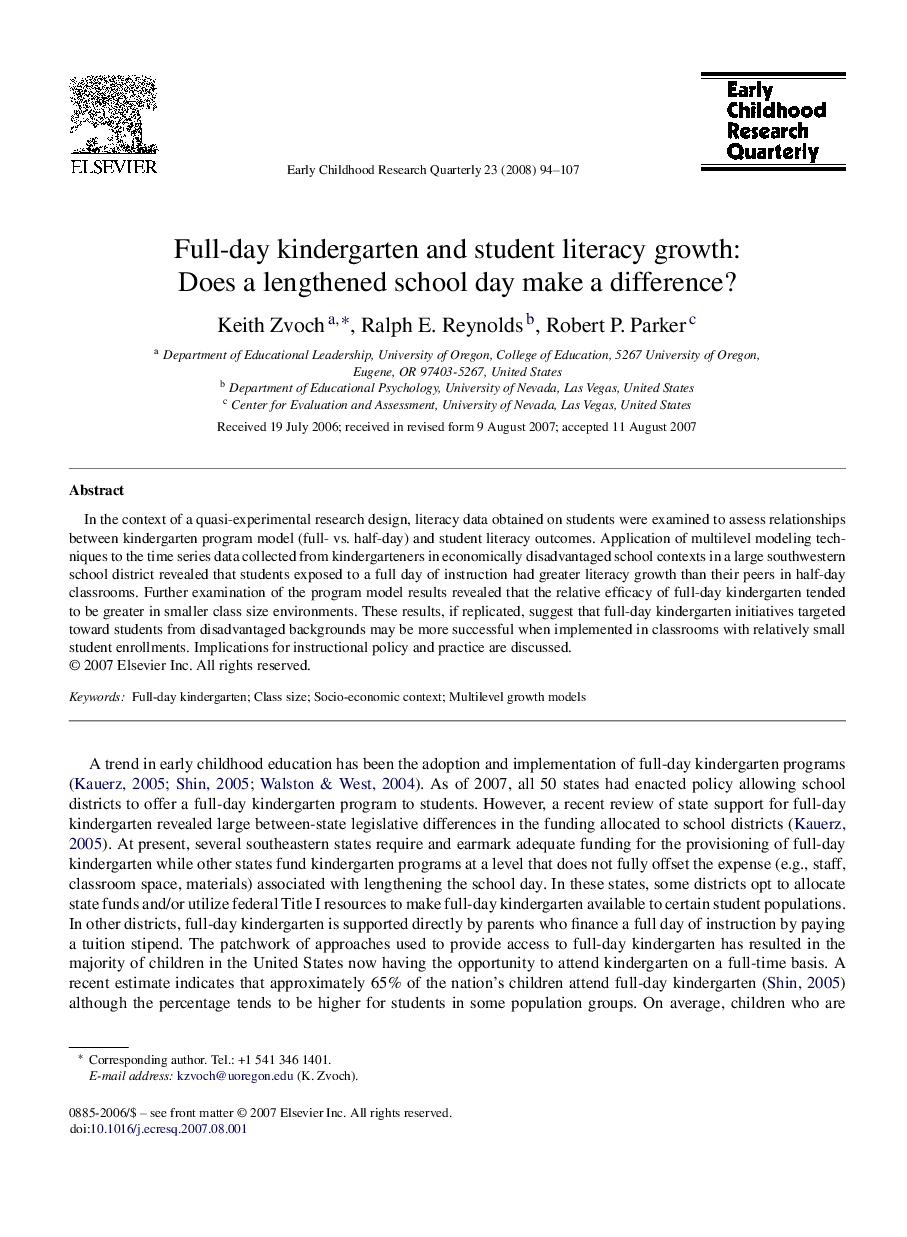| Article ID | Journal | Published Year | Pages | File Type |
|---|---|---|---|---|
| 353986 | Early Childhood Research Quarterly | 2008 | 14 Pages |
In the context of a quasi-experimental research design, literacy data obtained on students were examined to assess relationships between kindergarten program model (full- vs. half-day) and student literacy outcomes. Application of multilevel modeling techniques to the time series data collected from kindergarteners in economically disadvantaged school contexts in a large southwestern school district revealed that students exposed to a full day of instruction had greater literacy growth than their peers in half-day classrooms. Further examination of the program model results revealed that the relative efficacy of full-day kindergarten tended to be greater in smaller class size environments. These results, if replicated, suggest that full-day kindergarten initiatives targeted toward students from disadvantaged backgrounds may be more successful when implemented in classrooms with relatively small student enrollments. Implications for instructional policy and practice are discussed.
